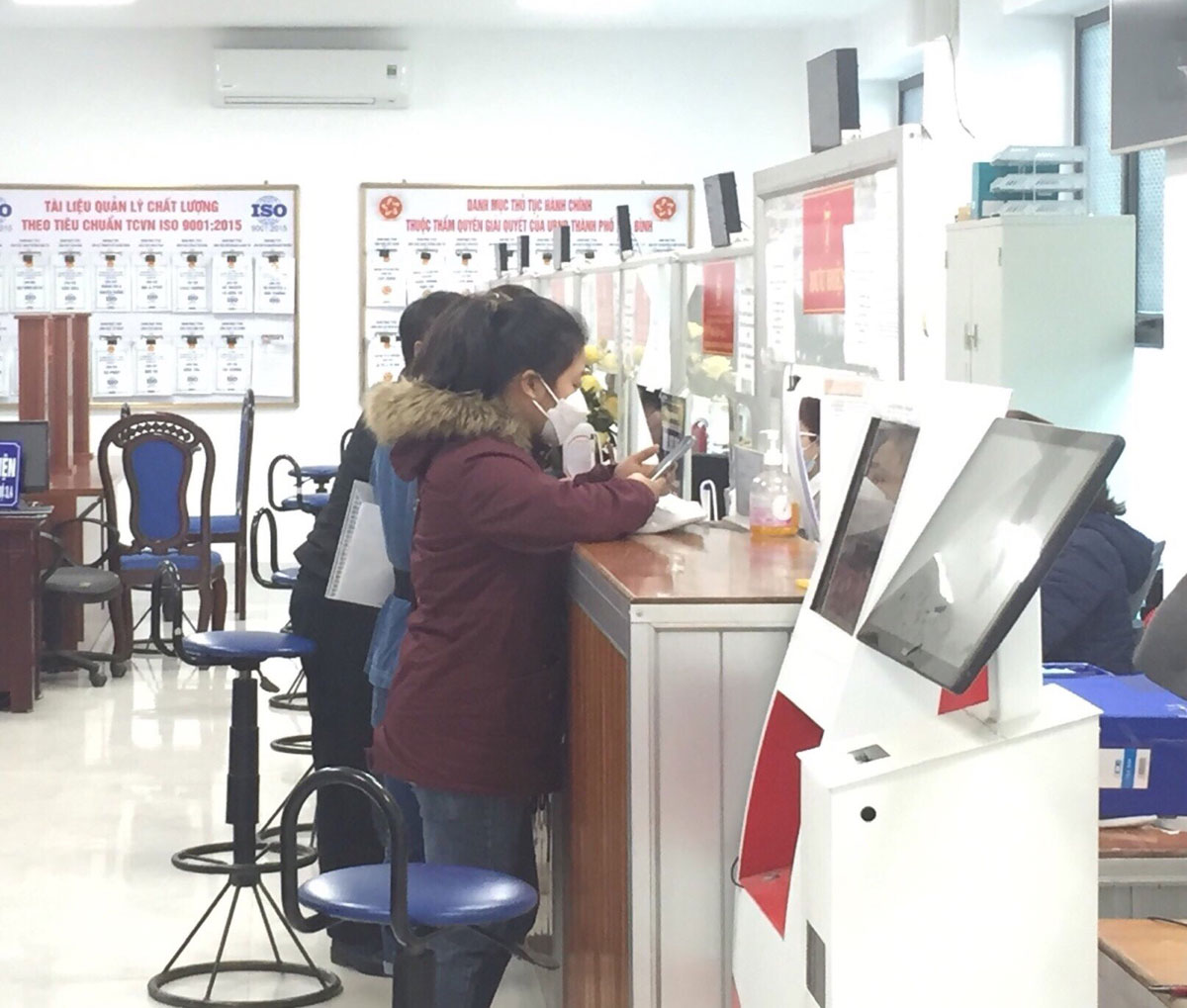
(HBO) - Hoa Binh province has stepped up IT application in the management work and e-authority building, with people and businesses put at the centre, towards a modern, transparent and open administrative system.
 Hoa Binh city builds a modern one-stop-shop
unit in service of e-authority building.
Hoa Binh city builds a modern one-stop-shop
unit in service of e-authority building.
The province has paid attention to upgrading its
data centre to provide technical infrastructure for the operation of shared
software in the province, as well as specialised software of agencies.
All of state agencies in Hoa Binh have installed
the Local Area Network (LAN) and broadband internet. The rate of officials
equipped with computers reaches 98% at the provincial level, 91% in districts,
and 88% at the communal level.
All of local departments and agencies, and
district-level People’s Committees have also been connected to the provincial
People’s Committee. Meanwhile, 100% of communal-level People’s Committees are
linked with the district-level committees.
The Local Government Service Platform (LGSP), an
integrated data-sharing platform, has also been connected to the National
Government Service Platform.
In the first quarter of this year, the
provincial public service portal received 72,901 applications online out of a
total of nearly 88,424 dossiers. The effective provision of online public
services has helped organisations, businesses and units save time and better
handle administrative procedures.
To improve the efficiency of e-authority
building, the province will push ahead with IT application in the management
work in all fields, and build an index system assessing digital transformation
by state agencies in the locality. /.
Hoa Binh province is undergoing a dynamic transformation amid Vietnam’s national digital transition. Building on Poliburo’s Resolution No. 57-NQ/TW on breakthroughs in science, technology, innovation, and national digital transformation, the province has rolled out a wide range of practical action plans. A standout initiative is the "Digital Literacy for All” movement, an effort to ensure that no one is left behind in the digital era.
Hoa Binh province is undergoing a dynamic transformation in the wake of the national digital transformation movement. Building on Resolution No. 57-NQ/TW of the Politburo on breakthroughs in science, technology, innovation, and national digital transformation, the province has implemented a wide range of practical action plans. A standout initiative is the "Digital Literacy for All” movement ambitious effort to ensure that no one is left behind in the digital age.
With a spirit of unity and proactive problem-solving, the Party Committee, the government and the people of Dong Lai Commune (Tan Lac District) have made great strides in implementing the resolutions of the 24th Party Congress of the commune for the 2020 - 2025 term. Focusing on leadership and practical actions, the commune has brought the Party’s resolutions into daily life, creating strong impacts and pushing the local development forward.
Amid the nationwide push for digital transformation, young people in Hoa Binh Province are stepping up as dynamic pioneers, applying technology to enhance Youth Union operations and expand the reach of youth-led initiatives. Through creativity and adaptability, Youth Union organizations at all levels have introduced a series of practical solutions, contributing to modern governance and community development.
In recent years, An Nghia commune, located in Lac Son district, has stepped up administrative reform, focusing on improving the quality and efficiency of its single-window service unit for receiving and processing administrative procedures. These improvements have helped create favourable conditions for local residents and organisations to handle administrative procedures, contributing to the commune’s broader socio-economic development.
The Prime Minister-approved master plan to develop the multi-use value of forests ecosystems through 2030, with a vision to 2050, aims to improve the management and sustainable use of forest resources, create jobs, increase incomes, and improve the living standards of ethnic minorities, people in mountainous and remote areas, forest workers and those living near forests.



 Hoa Binh city builds a modern one-stop-shop
unit in service of e-authority building.
Hoa Binh city builds a modern one-stop-shop
unit in service of e-authority building.